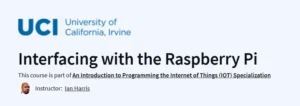What will you learn in this Municipal Solid Waste Management in Developing Countries Course
Understand the challenges and opportunities in managing municipal solid waste in low- and middle-income countries.
Explore the technical, environmental, social, financial, and institutional aspects of waste management systems.
Learn about sustainable solutions and best practices through real-world case studies.
Apply the Integrated Sustainable Waste Management (ISWM) framework to analyze and improve waste management practices.
Program Overview
1. Physical Elements of Solid Waste Management
⏳ 2 hours
Introduction to the current waste management situation in developing countries and the ISWM framework.
2. Governance Aspects
⏳ 2 hours
Examination of policy, regulation, and institutional roles in waste management.
3. Financial Aspects
⏳ 2 hours
Analysis of funding mechanisms, cost recovery, and economic sustainability.
4. Environmental and Health Aspects
⏳ 2 hours
Assessment of environmental impacts and health risks associated with waste management.
5. Social Aspects
⏳ 2 hours
Exploration of community involvement, public awareness, and stakeholder engagement.
6. Waste Collection and Transport
⏳ 2 hours
Strategies for efficient collection and transportation of municipal solid waste.
7. Waste Treatment and Disposal
⏳ 2 hours
Overview of treatment technologies and disposal methods suitable for developing countries.
8. Recycling and Resource Recovery
⏳ 2 hours
Insights into recycling practices and the role of the informal sector.
9. Planning and Implementation
⏳ 2 hours
Guidance on developing and executing effective waste management plans.
10. Case Studies and Practical Applications
⏳ 2 hours
Real-world examples illustrating successful waste management interventions.
Get certificate
Job Outlook
Equips learners for roles such as Environmental Consultant, Waste Management Specialist, and Urban Planner.
Applicable in sectors like public health, environmental NGOs, municipal services, and international development agencies.
Enhances employability by providing practical skills in sustainable waste management practices.
Supports career advancement in fields focused on environmental sustainability and urban development.
Specification: Municipal Solid Waste Management in Developing Countries
|
FAQs
- Basic familiarity with environmental concepts is helpful but not mandatory.
- The course explains technical terms in an accessible way.
- Background in public health, urban planning, or engineering is a plus.
- Beginners may need extra reading for complex topics.
- The program is designed for both professionals and motivated students.
- Useful for NGO workers in sustainability or public health.
- Beneficial for policy advisors and urban development planners.
- Helps community organizers understand waste challenges.
- Provides insights for entrepreneurs in recycling or green tech.
- Expands employability in international development projects.
- Focuses on context-specific solutions for low- and middle-income countries.
- Includes strategies for community-led initiatives.
- Explores the role of informal recycling sectors.
- Covers scalable, cost-effective collection and treatment methods.
- Highlights real case studies from developing contexts.
- Includes modules on governance and institutional roles.
- Explains how to align policies with local realities.
- Covers funding and cost-recovery mechanisms.
- Emphasizes public participation and community engagement.
- Prepares learners to connect technical systems with policymaking.
- Provides practical skills recognized in sustainability fields.
- Builds credibility for roles in NGOs, UN projects, or development agencies.
- Strengthens your portfolio with real-world case applications.
- Opens opportunities in consulting and advisory services.
- Demonstrates cross-cultural problem-solving ability.





